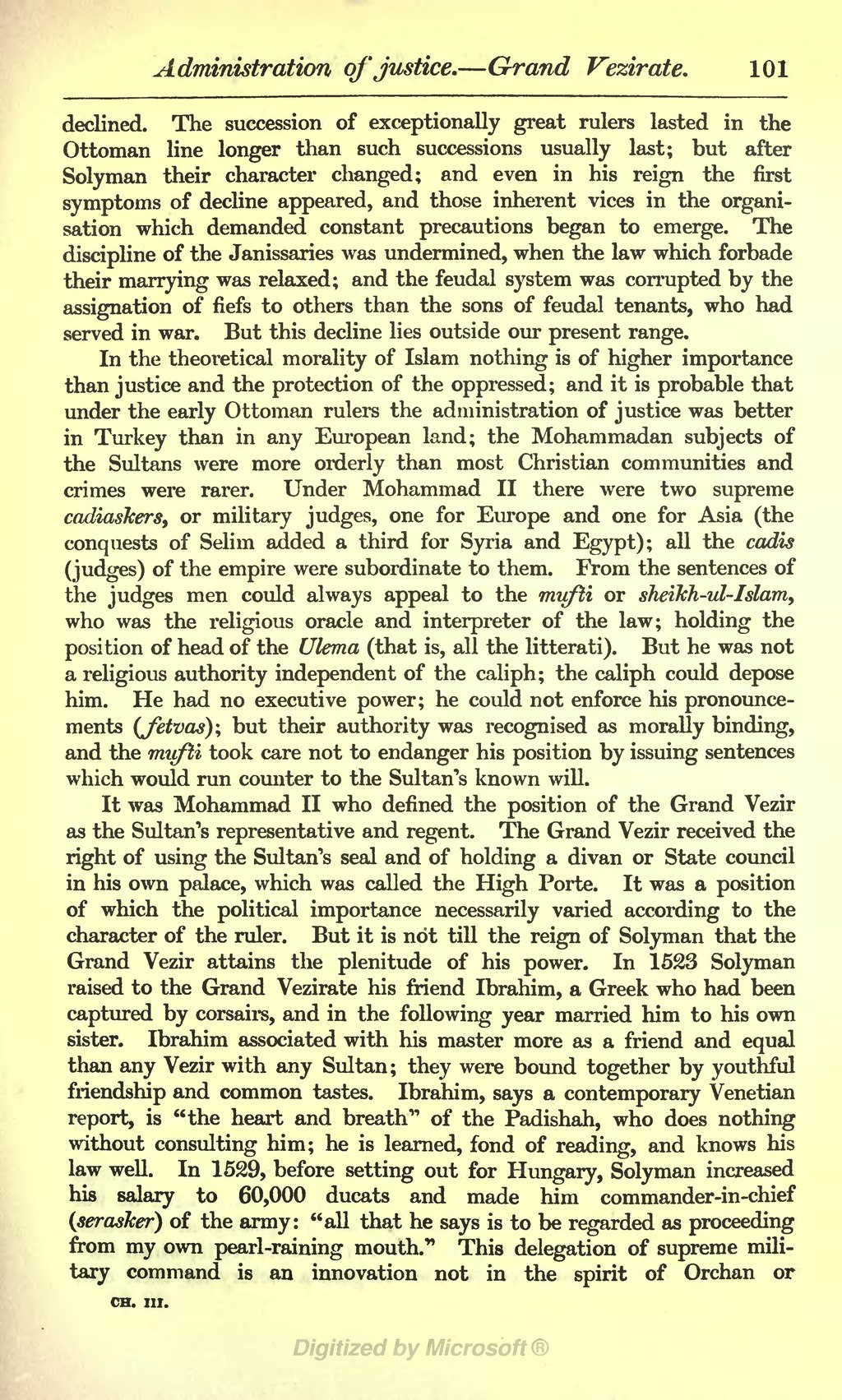declined. The succession of exceptionally great rulers lasted in the Ottoman line longer than such successions usually last; but after Solyman their character changed; and even in his reign the first symptoms of decline appeared, and those inherent vices in the organisation which demanded constant precautions began to emerge. The discipline of the Janissaries was undermined, when the law which forbade their marrying was relaxed; and the feudal system was corrupted by the assignation of fiefs to others than the sons of feudal tenants, who had served in war. But this decline lies outside our present range.
In the theoretical morality of Islam nothing is of higher importance than justice and the protection of the oppressed; and it is probable that under the early Ottoman rulers the administration of justice was better in Turkey than in any European land; the Mohammadan subjects of the Sultans were more orderly than most Christian communities and crimes were rarer. Under Mohammad II there were two supreme cadiaskers, or military judges, one for Europe and one for Asia (the conquests of Selim added a third for Syria and Egypt); all the cadis (judges) of the empire were subordinate to them. From the sentences of the judges men could always appeal to the mufti or sheikh-ul-Islam, who was the religious oracle and interpreter of the law; holding the position of head of the Ulema (that is, all the litterati). But he was not a religious authority independent of the caliph; the caliph could depose him. He had no executive power; he could not enforce his pronouncements (fetvas); but their authority was recognised as morally binding, and the mufti took care not to endanger his position by issuing sentences which would run counter to the Sultan's known will.
It was Mohammad II who defined the position of the Grand Vezir as the Sultan's representative and regent. The Grand Vezir received the right of using the Sultan's seal and of holding a divan or State council in his own palace, which was called the High Porte. It was a position of which the political importance necessarily varied according to the character of the ruler. But it is not till the reign of Solyman that the Grand Vezir attains the plenitude of his power. In 1523 Solyman raised to the Grand Vezirate his friend Ibrahim, a Greek who had been captured by corsairs, and in the following year married him to his own sister. Ibrahim associated with his master more as a friend and equal than any Vezir with any Sultan; they were bound together by youthful friendship and common tastes. Ibrahim, says a contemporary Venetian report, is "the heart and breath" of the Padishah, who does nothing without consulting him; he is learned, fond of reading, and knows his law well. In 1529, before setting out for Hungary, Solyman increased his salary to 60,000 ducats and made him commander-in-chief (serasker) of the army: "all that he says is to be regarded as proceeding from my own pearl-raining mouth." This delegation of supreme military command is an innovation not in the spirit of Orchan or
